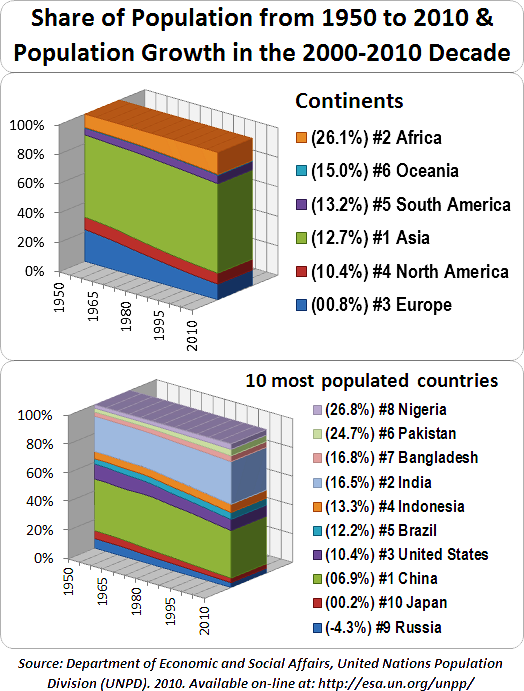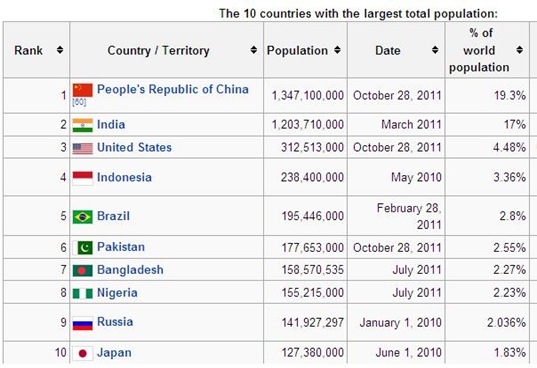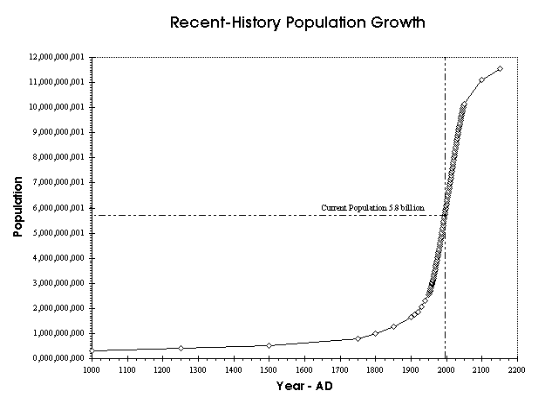 According to the United Nations, by 31st Oct 2011, the world’s population will reach seven billion. So the UN has suggested that it’s high time to take serious actions to make our future healthy, sustainable and prosperous. The future should not be marked by inequalities, environmental decline and economic setbacks. The UN is taking this record population as a success for humanity because it means people are living longer and more children are surviving worldwide.
According to the United Nations, by 31st Oct 2011, the world’s population will reach seven billion. So the UN has suggested that it’s high time to take serious actions to make our future healthy, sustainable and prosperous. The future should not be marked by inequalities, environmental decline and economic setbacks. The UN is taking this record population as a success for humanity because it means people are living longer and more children are surviving worldwide.

The world population has experienced continuous growth since the end of the Great Famine and Bubonic Plague in 1350, when it stood at around 370 million. The highest rates of growth—increases above 1.8% per year—were seen briefly during the 1950s, and for a longer period during the 1960s and 1970s. The growth rate peaked at 2.2% in 1963, and had declined to 1.1% by 2009.
You would be surprised to know that Approximately 4.03 billion people live in the following ten countries, representing 58.7% of the world’s population as of November 2010.

However, in my opinion, the growth in human numbers is "unprecedented", and many environmental problems, such as rising levels of atmospheric carbon dioxide, damaged life-nurturing ecosystems, global warming, exhausting conventional energy supplies, civil unrest in highly populated countries and pollution are caused due to over-population. In one line, we can say over-population is a big risk to the human civilization and the planet Earth.


I think countries like India, China, Bangladesh should take serious steps to decrease the population growth rates. 7 billion is a huge number.
This is an alarming news.. is duniya ka kya hoga.. ab.
That’s kind of… scary.
I wonder how we will challenge it and preserve the future generations!